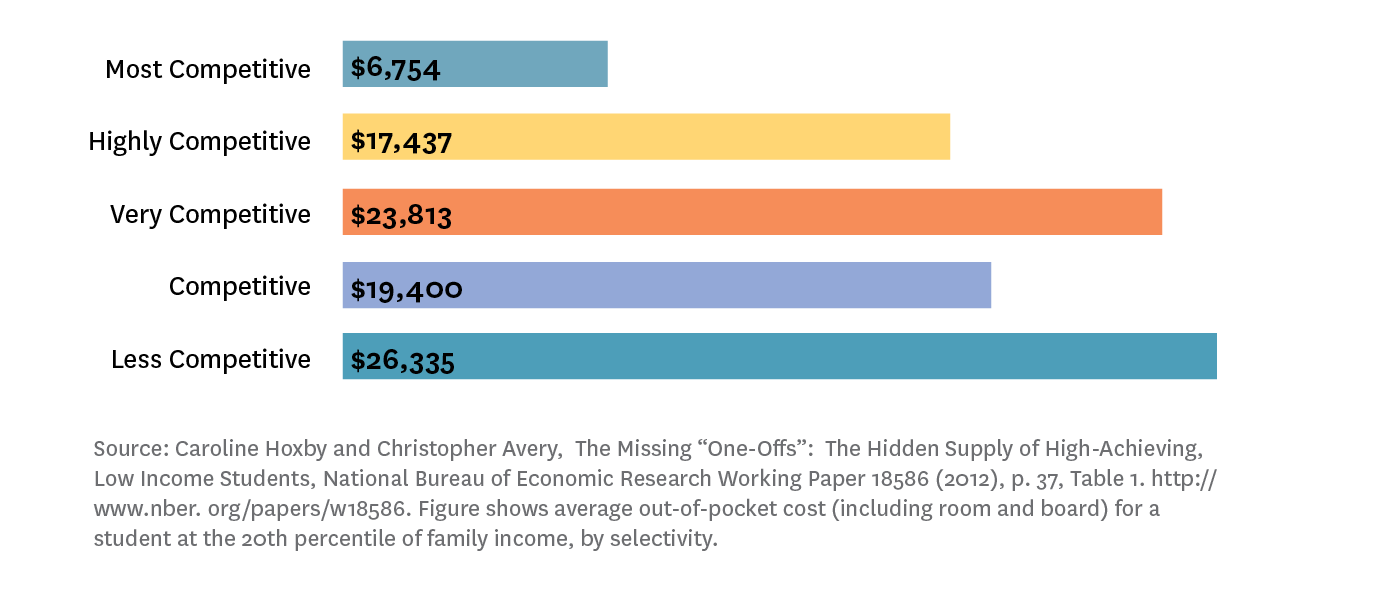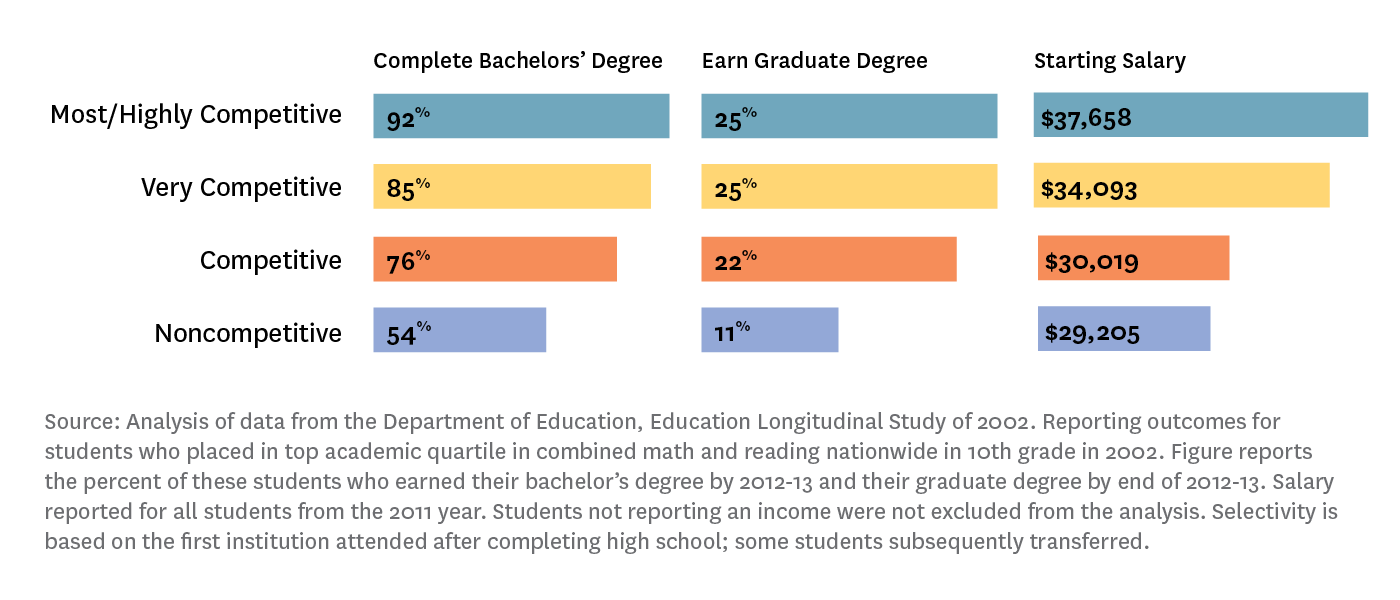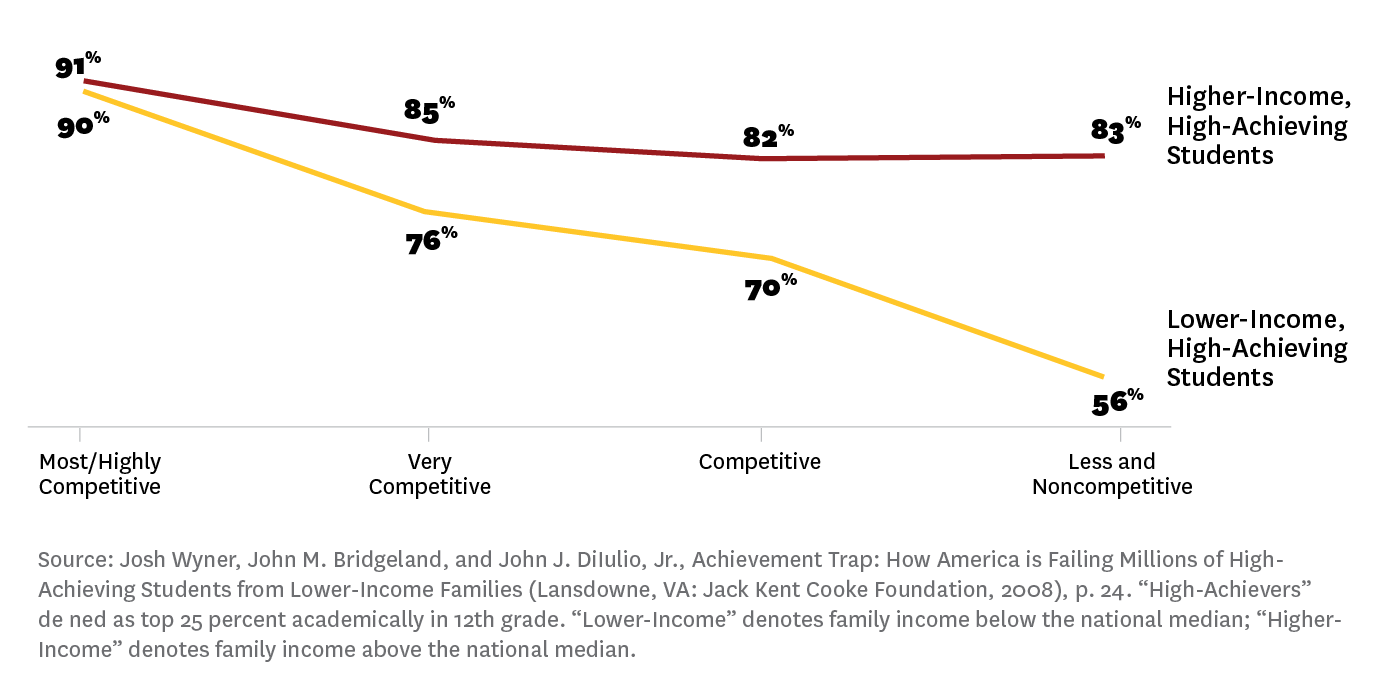Why Should Your Student Apply to Selective Colleges and Universities?
Financial Benefits
Attending an “expensive” college or university can cost less and get your child more.
Top-Tier institutions:
Spend more money on students — selective colleges invest more money per student than non-selective schools – specifically: dedicated faculty; state-of-the-art laboratories and libraries; fully staffed centers to help with career planning, tutoring and studying abroad; and a greater diversity of majors.
Lower the cost attendance — the richest colleges and universities (such as Harvard, Yale, and Stanford) ask many students to pay only 20 percent of the overall cost of attendance. For low-income students, the total is usually reduced to $0 because financial aid (through grants and loans) covers all costs.
Out of Pocket Costs for Low-Income Students at Selective Institutions

Income and Career Benefits
For low-income, high-achieving high school students, the rewards of attending a selective college or university can lead to greater postgraduate opportunities and overall earnings.
Top-Tier institutions:
Expose students to graduate school opportunities — receive greater exposure to resources that can help on the path to graduate school.
Provide students access to important and influential networks — alumni groups can help open doors to new opportunities, exposing students to various career connections.
Increase students’ chances of making more money over their lifetime — research has found that students from low-income backgrounds who attend elite schools stand to make greater financial gains over a lifetime than their peers who attend less selective schools.
The USC Bovard Scholars program helps high-achieving students with financial need gain admission to and succeed at the nation’s top universities.

Educational Benefits
The quality of a student’s education varies based on the resources the school has to offer.
Top-Tier institutions:
Are designed to help students graduate on time — four-year graduation rates tell a lot about a school; the best schools in the nation graduate 85 to 88 percent of all freshmen who enter within the four-year timeline.
Give students the chance to make friends with those who share a passion for learning — attending a selective school means your child is likely to be surrounded by other intellectually curious students.
Provide students with more — more choices of major, more opportunities outside the classroom (such as study abroad, research, and internship opportunities), more access to advanced facilities, and more exposure to top-notch faculty.
Source: http://www.jkcf.org/scholarship-programs/undergraduate-transfer/why-apply-to-selective-colleges-and-universities/
Graduation rates of high-achieving students, by income and selectivity of institution attended.



